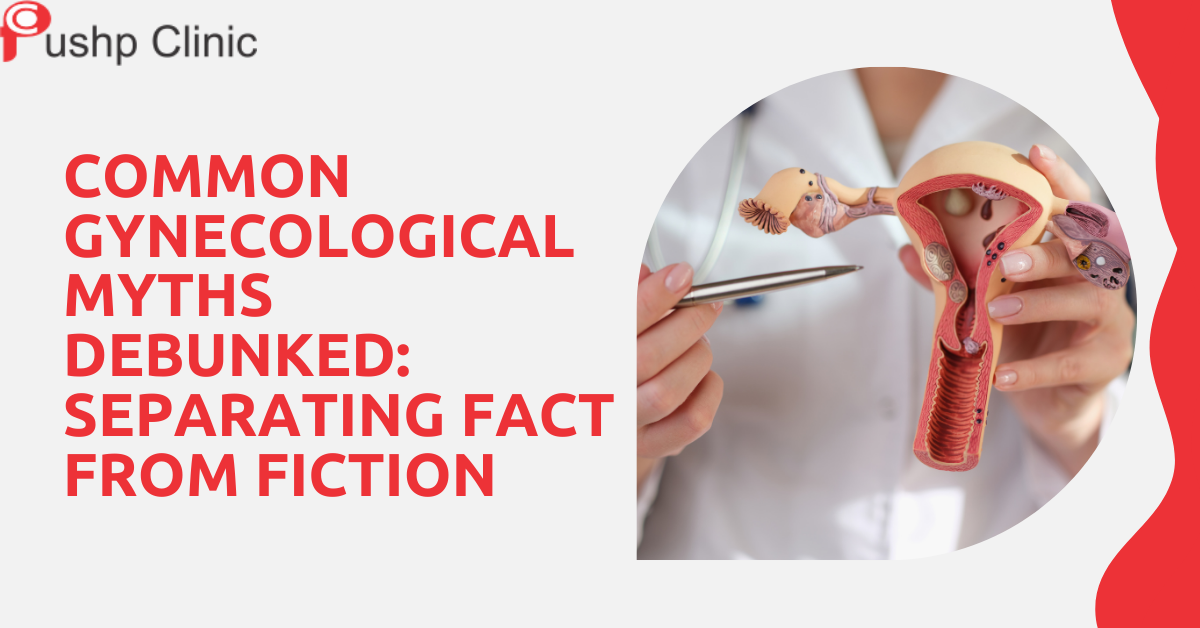
Common gynecological myths have been around for generations, leading to confusion and unnecessary concerns about women’s health. Misinformation about reproductive health, menstrual cycles, and pregnancy can cause women to make poor health decisions. It’s time to debunk these widely believed misconceptions and uncover the truth.
1. Common Gynecological Myths: Exercise During Periods is Harmful
Many believe that physical activity should be avoided during menstruation. In reality, gentle exercises like yoga, walking, and stretching can alleviate cramps and improve mood. There is no scientific reason to stop working out unless you experience severe discomfort.
2. Irregular Periods Always Indicate a Medical Issue
One of the most common reproductive health myths is that irregular periods always signal a serious condition. While chronic irregularity may be linked to conditions like PCOS or thyroid disorders, occasional fluctuations due to stress, weight changes, or lifestyle shifts are normal.
3. Birth Control Pills Lead to Permanent Infertility
A widespread misconception in women’s health is that contraceptive pills cause infertility. In truth, fertility typically returns within a few months after stopping the medication. However, pre-existing reproductive issues may delay conception, not the birth control itself.
4. Only Sexually Active Women Need to Visit a Gynecologist
Among the many common gynecological myths, one of the most harmful is that virgins don’t need gynecological care. Gynecologists address much more than sexual health, including menstrual irregularities, infections, and hormonal imbalances. Every woman should have routine check-ups, regardless of sexual activity.
5. Tight Underwear Causes Vaginal Infections
Some believe that wearing tight-fitting underwear leads to infections. While breathable fabrics like cotton are preferred for comfort, infections are primarily caused by bacterial or yeast overgrowth, not clothing choices. Maintaining proper hygiene is more important than the type of underwear you wear.
6. Heavy Periods Always Indicate a Serious Illness
Many women worry that heavy periods are a sign of a major health problem. While excessive bleeding can be linked to fibroids or hormonal issues, occasional heavy flow can also be influenced by stress, lifestyle changes, or temporary imbalances. A doctor’s visit is necessary if heavy bleeding persists for multiple cycles.
7. You Can’t Get Pregnant During Menstruation
One of the most misleading gynecological health myths is that pregnancy is impossible during a period. Although less likely, sperm can survive for several days in the reproductive tract, and early ovulation can lead to pregnancy even if intercourse happens during menstruation.
8. Vaginal Discharge is Always a Sign of Infection
Many women panic when they notice vaginal discharge, assuming it means infection. In reality, clear or white discharge without a foul smell or irritation is completely normal. However, sudden changes in color, consistency, or odor may indicate an underlying issue that requires medical attention.
9. Menopause Happens Instantly at 50
A prevalent reproductive health misconception is that menopause happens overnight. The truth is, menopause is a gradual process that begins with perimenopause in a woman’s 40s, lasting several years before menstruation completely stops. Symptoms vary widely among individuals.
10. Douching is Necessary for Vaginal Hygiene
One of the most harmful common gynecological myths is that douching keeps the vagina clean. The vagina is self-cleansing, and douching disrupts the natural balance of healthy bacteria, increasing the risk of infections. Mild soap and water on the external genital area are sufficient for hygiene.
Final Thoughts on Common Gynecological Myths
Believing in gynecological health myths can lead to unnecessary stress and poor health choices. It is essential to rely on medical professionals for accurate information instead of myths passed down through generations. If you have concerns, consult a trusted gynecologist to get the right advice for your reproductive well-being.